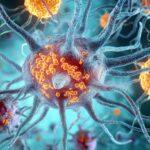Exploring the Relationship Between CBD and Hormones: A Comprehensive Guide
In recent years, cannabidiol, or CBD, has surged to the forefront of wellness discussions, praised for its diverse range of potential health benefits. Beyond its well-known effects on anxiety relief and pain management, one of the more captivating aspects of CBD is its interaction with the body’s hormonal system. This guide will explore how CBD affects hormones, its role in the endocrine system, and the potential benefits and considerations for those looking to use CBD for hormonal balance.
Understanding the Endocannabinoid System (ECS) and Hormones
To grasp how CBD influences hormones, it’s essential to first understand the endocannabinoid system (ECS). The ECS is a complex network of receptors, endocannabinoids (meaning they are naturally produced by the body), and enzymes that work together to maintain homeostasis, or balance, in various bodily functions. This system significantly impacts hormone secretion and regulation.
CBD, unlike THC (the psychoactive component of cannabis), doesn’t bind directly to cannabinoid receptors but interacts with them in a way that influences various processes. This indirect interaction can modulate cellular functions and hormones in the body, making it a subject of growing interest for those looking to maintain or restore hormonal balance.
CBD’s Impact on the Endocrine System
Stress Response and Cortisol
Cortisol, often dubbed the “stress hormone,” plays a crucial role in helping the body respond to stress. It is produced by the adrenal glands and is linked with various bodily processes, including metabolism and immune response. However, chronic high levels of cortisol can lead to a host of health problems, including anxiety, weight gain, and weakened immune function.
Research suggests that CBD may help regulate cortisol levels, promoting relaxation and reducing the physiological effects of stress. For instance, a study published in the Journal of Psychopharmacology found that participants who took CBD experienced reduced anxiety and improved mood, likely due to its calming effect on the endocrine response to stress. This aspect of CBD may be particularly beneficial for those struggling with anxiety and the cascading effects that stress can have on their hormonal balance.
Sleep and Melatonin
Another crucial hormone influenced by CBD is melatonin, which regulates sleep cycles. Proper sleep is vital for hormonal balance, as many hormones are released or suppressed during different phases of sleep.
CBD can enhance sleep quality by influencing melatonin levels and promoting a more restful night. Individuals dealing with insomnia or erratic sleep patterns may find that a CBD regimen assists them in falling asleep faster and enjoying deeper sleep cycles. Reports from users indicate that after integrating CBD into their bedtime routine, they experience not only prolonged sleep but also wake feeling more refreshed.
Reproductive Hormones
The effects of CBD on reproductive hormones like estrogen and progesterone are still being explored, and findings are somewhat limited. While some preliminary animal studies indicate that CBD may modulate the expression of these hormones, definitive conclusions cannot yet be drawn. Anecdotal evidence suggests potential benefits, especially for women dealing with menstrual discomfort or menopausal symptoms. By supporting overall wellness and possibly alleviating symptoms like mood swings or cramps, CBD could still play a helpful role during hormonal fluctuations, even if more extensive research is needed.
Insulin and Metabolism
CBD might also have a role in influencing insulin levels and metabolism. Insulin is critical for managing blood sugar levels and overall metabolic health. By interacting with the ECS, CBD could help regulate the hormones involved in metabolic processes, making it a potential ally for those managing conditions related to insulin resistance, such as type 2 diabetes. The evidence is still preliminary, but ongoing research could illuminate how CBD helps improve metabolic health in the future.
Benefits of Using CBD for Hormonal Balance
-
Stress Management: By potentially lowering cortisol levels, CBD can serve as a natural option for managing everyday stress and anxiety. The promotion of verbal relaxation through CBD’s components paves the way for a calmer mind and body, conducive to hormonal health.
-
Improved Sleep Quality: The enhancement of melatonin levels leads to better quality sleep, which is essential for rejuvenating and regulating various hormonal functions.
-
Mood Regulation: CBD’s positive impact on serotonin levels can help stabilize mood, reducing anxiety and possibly improving the emotional regulation connected to hormonal fluctuations.
Considerations and Potential Side Effects
Having a conversation about the benefits of CBD wouldn’t be complete without discussing the limitations and precautions:
-
Limited Research: The body of research on CBD’s effects on reproductive hormones is still emerging. While some studies hint at potential benefits, conclusive findings, especially in human trials, remain sparse.
-
Medication Interactions: CBD may interact with certain medications, including hormonal treatments such as birth control or hormone replacement therapy. Given that CBD can influence how the liver metabolizes drugs, it’s crucial to speak with a healthcare provider before starting CBD, particularly if you’re on any medication.
-
Start Low, Go Slow: For those new to CBD, it’s wise to start with a lower dose and progressively adjust based on individual response and tolerance. This method helps minimize potential side effects and allows for personal assessment of how CBD interacts with your body.
Conclusion
The relationship between CBD and hormones invites an exciting exploration into wellness. While CBD appears to hold promise for regulating hormones such as cortisol and melatonin, crucial for stress response and sleep quality, it is essential to remember the need for more research to fully unravel its impact on the endocrine system—especially concerning reproductive hormones.
For anyone considering CBD as an option for hormonal balancing, it’s advisable to consult with a healthcare provider, commence with modest doses, and stay informed about possible interactions with existing medications. By taking these steps, individuals can integrate CBD into their health routine, aiming for optimal hormonal balance and overall well-being.
Actionable Tips
- Consult a Healthcare Provider: Always reach out for professional advice before trying CBD, particularly if you have health concerns or are on medications.
- Start Low and Slow: Initiate your CBD journey with a minimal dose, gradually adjusting as needed.
- Monitor Your Body’s Response: Pay attention to how your body reacts to CBD. Keep a journal to track changes in how you feel.
- Select Quality Products: Choose CBD products from reputable manufacturers that perform third-party testing for purity and potency.
Understanding the nuances of how CBD interacts with hormonal health can empower you to make informed choices in your wellness journey, paving the way to a balanced and healthy life.





















